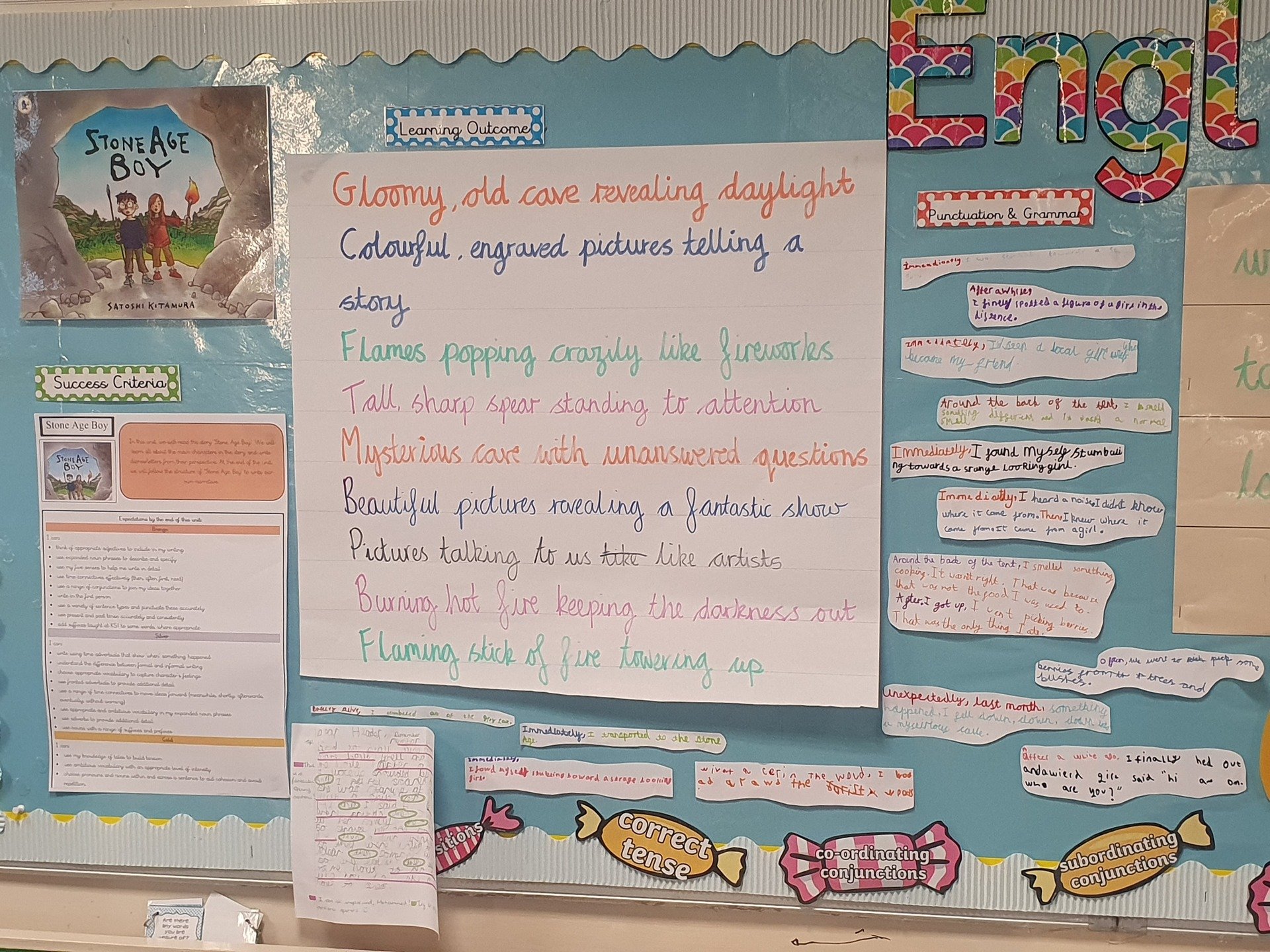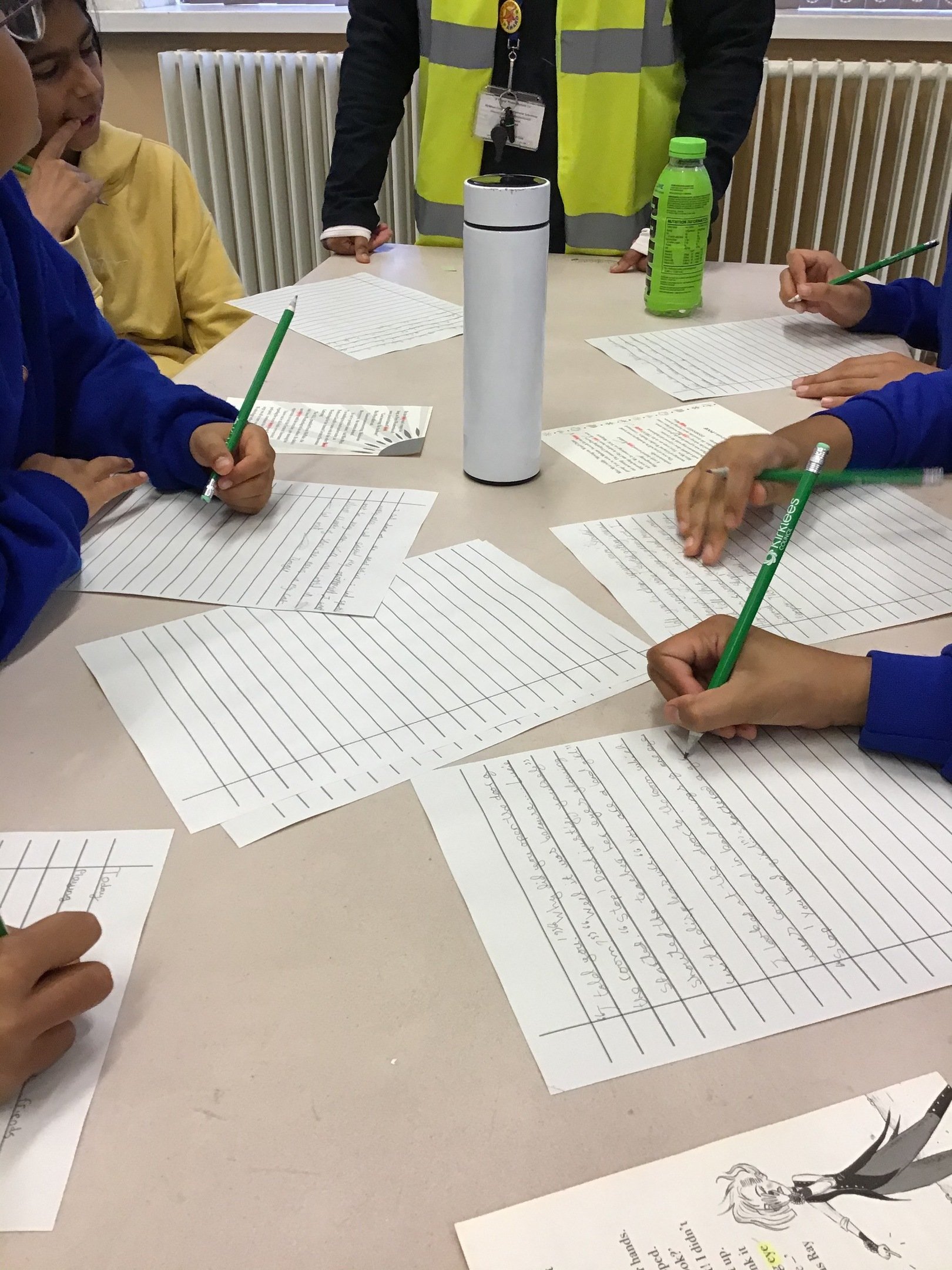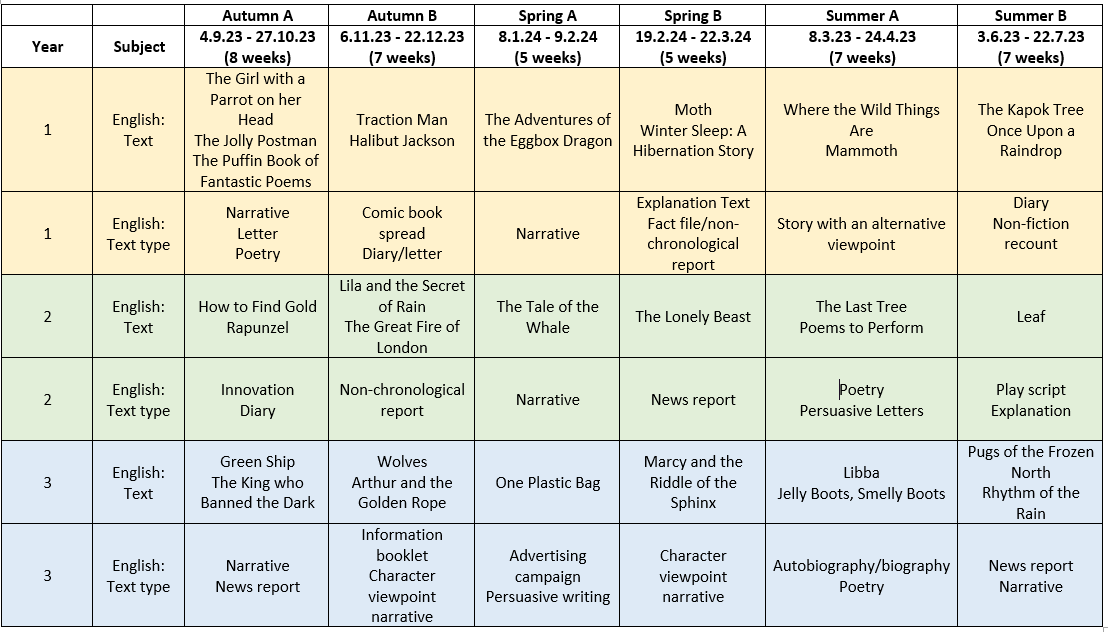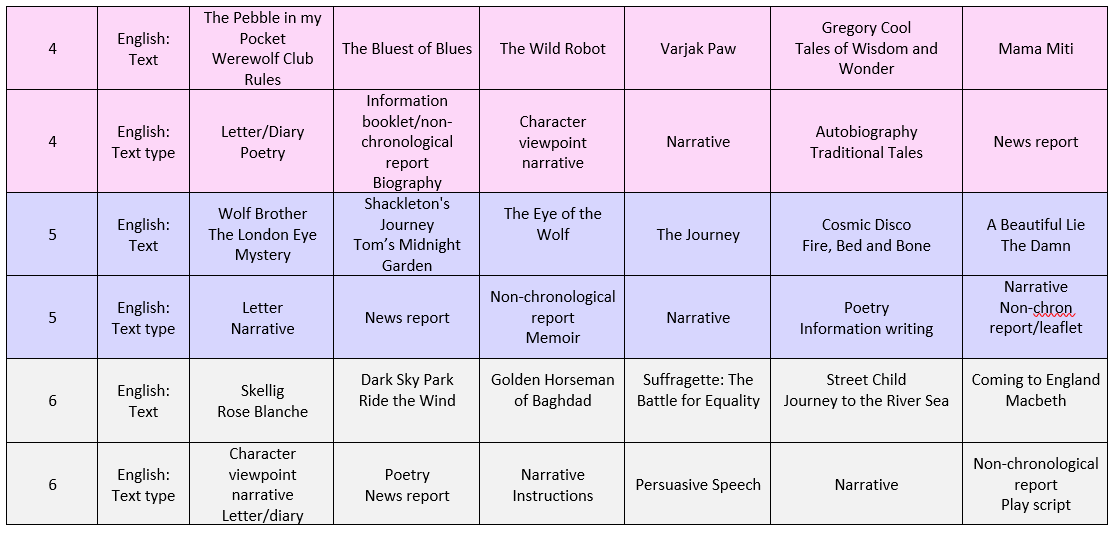Writing
Writing is one of the most important life skills we learn at school and takes many different forms. In addition to mastering the basics of phonics and handwriting, children will learn to write for many different purposes. These include story writing, but also reports, recounts, persuasive texts, play scripts, poetry, biographies and letters both formal and informal.
English is taught daily and each half term’s work will usually consist of two or more units of work, which focus on different styles of writing, for different kinds of reader. The children’s writing is assessed at the beginning and the end of each unit, to track their progress.
To write with confidence, children will also need a sound grasp of grammar and spelling, which are taught at the beginning of each English session and are linked closely to the writing focus. Grammar, punctuation and spelling are all the subject of national tests at the end of Key Stages 1 and 2.
Writing is not confined to English lessons – there are many opportunities to write in most other subjects, including maths, science, topic, RE and others.
What makes us successful writers?
- The first step towards becoming a successful writer is the ability to recognise and understand what it is that makes effective writing. Before we begin writing ourselves, we spend time examining the key characteristics of writing in different genres.
- Once we have spent time familiarising ourselves with the style and content of different writing genres, we spend time practising or replicating what we have learnt. During this phase, we hone our grammatical skills and develop our organisational skills, sentence structure and use of vocabulary.
- Now that we are aware and comfortable with what good writing looks like, and we have had time to practise our skills, now we look to harness our children’s creativity through recreating writing tasks. At Warwick Road, we ensure that our children get the opportunity to write for many different purposes across the curriculum.
How and what we learn at Warwick Road
We use the Power of Reading scheme to develop the children's ability to produce cohesive, detailed writing in which the meaning is made clear and the interest of the reader is gripped. Attention is paid throughout the school to the formal structures of English, grammatical detail, punctuation and spelling. Teachers are flexible in their selection of Literacy experts' strategies to suit the needs of the children and the text type being taught.
Teachers model writing strategies and the use of phonics and spelling strategies in shared writing sessions. Guided writing sessions are used to target specific needs of both groups and individuals, whilst children have opportunities to write at length in extended independent writing sessions at the end of each unit. The children are given frequent opportunities in school to write in different contexts using quality texts as a model and for a variety of purposes and audiences. The text types which are required to be covered by The National Curriculum (2014) are outlined in the medium term plans for each year group to ensure that there is a breadth of coverage. They may be asked to produce their writing on their own or as a part of group.
There is an increasing emphasis on the purpose of writing: children are provided with the ‘P.I.E.’ acronym (Persuade, Inform or Entertain), and are expected to be able to explain why they are writing any given piece of writing.
With regard to assessment, there is no longer any writing exam at the end of each half-term; instead, teachers are to make an informed judgment of their children based on the Teacher Assessment Framework (TAF) for each year. As the TAF detail end-of-year expectations, teachers are expected to make a prediction as to where they expect their child to be each half-term. These judgments will be reviewed by the SLT and subject coordinator during book scrutinies.


Subject LTP
Progression of skills document
Parental support
Education is a partnership between home and school. Children’s homework will frequently involve writing tasks. As with all other homework, your children will find it helpful to have a quiet space in which to write, away from the distractions of the television or computer, where possible. Children thrive on praise, so reading over their homework and encouraging them to do their best will definitely motivate them to write.
Subject policy
English lead: Mrs J Hunter-Smith
English governor: Fathima Bhamjee
Mrs Hunter-Smith is our English leader. Please speak to Mrs Hunter-Smith if you would like to find out more about how we teach our English curriculum at Warwick Road Primary School.





